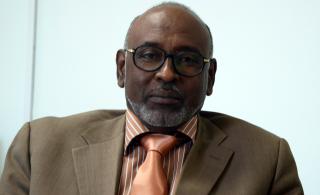Opinion
Towards a National Consensus Project (2)

Professor Ahmed Magzoub
In the first article, we reviewed the rationale for establishing a Sudanese project for national consensus. In this article, we dedicate the discussion to outlining the principles that we believe must be agreed upon, to be formalized in a charter as follows:
The Charter Text
We, the undersigned, have agreed to establish a united national front that prioritizes the nation, its values, and beliefs. This front is committed to protecting and defending the country, achieving full independence, preserving its resources, rebuilding and advancing it, strengthening its social fabric, and ensuring the welfare of its citizens.
This will be achieved according to the following principles:
1. Working towards the unity, security, and safety of Sudan and its citizens while achieving intellectual, cultural, political, and economic independence, sparing no effort to achieve this.
2. Protecting public freedoms, including freedom of thought, organization, political activity, and the formation of parties, as long as this does not infringe upon others’ freedoms or affect national security.
3. Ensuring judicial independence and the autonomy of the Public Prosecution, with the establishment of a Higher Judicial Council comprised of individuals renowned for their knowledge, integrity, competence, and legal experience. This council will oversee all judicial affairs, including management, funding, and professional and financial independence.
4. Establishing a constitutional court composed of experts with practical and academic experience to handle disputes concerning the constitutionality of laws.
5. Adopting a transitional constitution based on past constitutional experiences. To avoid a vacuum, the 2005 constitution will remain in use due to its political, societal, and international acceptance, with amendments to exclude provisions that are no longer relevant.
6. Endorsing Islamic Sharia as a basis for legislation and governance in Sudan, reflecting the people’s choice as expressed by major political blocs and parties, with considerations for personal status laws of specific groups. National legislation will be binding for all, akin to legal systems in other nations that prioritize general legislative authority.
7. Agreeing on peaceful power transitions through elections, granting governance to those chosen by the majority of the Sudanese people.
8. Establishing a federal system of governance as an effective mechanism for state administration, while enhancing past experiences to empower local governance with legislative, administrative, and financial authority to achieve citizens’ aspirations.
9. Limiting the transitional period to no more than 24 months, during which an independent, non-partisan government of technocrats will be formed. This government will be selected by a committee chosen at the founding meeting to approve the national consensus charter.
10. Ensuring equitable distribution of resources among governance levels, without weakening the central government or neglecting lower levels. A share of locally produced resources will be allocated to the producing state.
11. Achieving peace across the nation will be the government’s responsibility, building on past peace agreements with a comprehensive and fair vision that addresses grievances and prevents exploitation of tribal groups to threaten national security.
12. Affirming loyalty to the nation and prohibiting actions or behaviors that indicate foreign dependency for political gain. Political party funding sources must be transparent to prevent foreign organizations and states from influencing domestic affairs, recognizing that no funding comes without obligations to the financier.
13. Acknowledging the role of tribal, religious, and Sufi systems in promoting values of goodwill, cooperation, and national unity while preventing their exploitation for divisive regional or sectarian agendas.
14. Conducting foreign relations based on mutual respect, safeguarding the interests of all parties, and contributing to global peace and security without interfering in other nations’ internal affairs.
15. Establishing a fair economic system that encourages work and production, protects private ownership, and ensures societal balance through equitable development and minimum living standards.
16. Enhancing the efficiency and accessibility of civil services, with recruitment based on merit through open competition overseen by a civil service commission. Political affiliations must not influence leadership positions.
17. Guaranteeing free access to public education for all eligible children.
18. Promoting sports, culture, arts, and creativity, while nurturing Sudan’s cultural and athletic diversity to reflect its societal richness.
19. Protecting public health and ensuring adequate healthcare for all, with policies that guarantee continuity and inclusivity.
20. Providing sufficient clean water for citizens in urban and rural areas, as well as for livestock, while organizing grazing to protect the rights of farmers and herders.
21. Recognizing scientific research and technological advancement as essential for national progress, requiring collaboration between society and the government to achieve shared goals.
22. Protecting the rights of women and children according to Sudanese values, enabling women to participate in political, social, and executive roles, and ensuring proper child upbringing for a civilized and productive society.
23. Empowering youth as the cornerstone of reform and development by enhancing their capabilities, facilitating their marriage, and encouraging their participation in political, economic, and social development.
24. Approving this charter will establish a constituent body that will elect a council of no more than 100 members tasked with:
Forming an electoral commission.
Drafting a constitution, which will be ratified through a public referendum with a minimum 75% approval rate.
Establishing executive and other state institutions as outlined in the constitution.
Conclusion
This charter represents a framework for uniting Sudanese society in a single national front to overcome the challenges of war and its impacts on infrastructure, economy, and society. It is open for discussion, input, and refinement by all interested intellectuals and stakeholders, reflecting the collective right of citizenship and the duty to contribute to rebuilding post-war Sudan.



